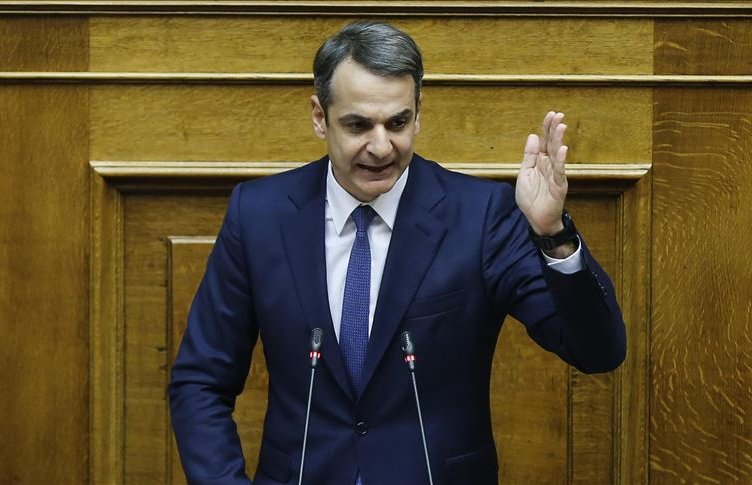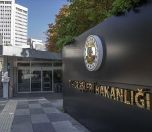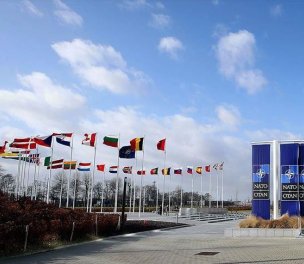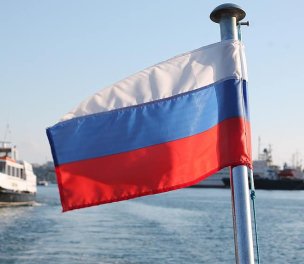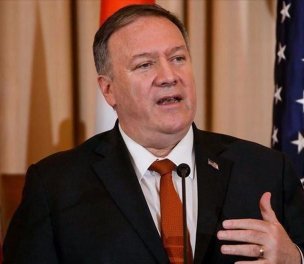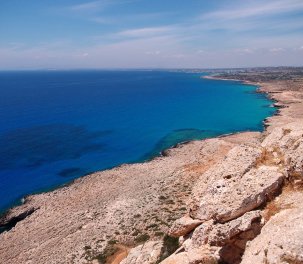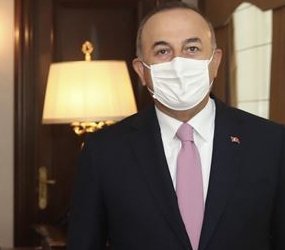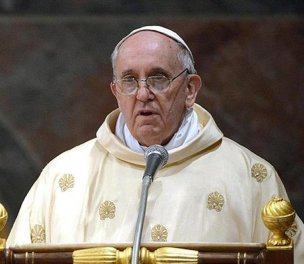Photo: AA/File
Greece will only enter into a dialogue with Turkey if it "stops provocation" in the Eastern Mediterranean, the country's prime minister Kyriakos Mitsotakis said today (September 4).
"From all the many over-the-top statements that Mr. Erdoğan [Recep Tayyip, President of Turkey] has made, there is only one I retain, the one about dialogue, and I respond with these six clear words: Stop the provocations, start the talks," he said during a meeting with the Chinese Communist Party's Director of Foreign Affairs Commission in Athens, Kathimerini reported.
Mitsotakis' remarks came after NATO Secretary-General Jens Stoltenberg's announcement yesterday that Athens and Ankara agreed to start talks for "deconfliction" in the Eastern Mediterranean.
"Turkey's illegal activities demand an international reaction," Mitsotakis further said, noting that he would meet with UN Secretary-General Antonio Guterres to deliver him a letter about "Turkey's violations in the area."
Tensions between Ankara and Athens have risen since late July over Turkey's hydrocarbon exploration activities in the Eastern Mediterranean as both countries' claimed maritime borders overlap each other.
After Stoltenberg said that he took the initiative to decrease the tension, Turkey's Ministry of Foreign Affairs released a written statement, saying that Ankara was ready for talks without preconditions.
Minister of Foreign Affairs: Greece lied to NATO
After Greece refuted Stoltenberg's statement, Minister of Foreign Affairs Mevlüt Çavuşoğlu accused his counterpart in Athens of lying to NATO.
"It is noteworthy that Greece lied about NATO Secretary-General. They initially agreed then told they did not. It is in fact Greece that is lying and not the secretary-general," Çavuşoğlu said at a news conference in the capital Ankara.
Greece once again showed they are not in favor of dialogue, Çavuşoğlu added.
He also criticized France for "provoking Greece against Turkey" and said that it should end "hysterical acts" that "ridicules itself."
Maritime border claims of Turkey and GreeceTurkey signed a maritime border agreeement with Libya's Governmenf of National Accord (GNA) on November 27, 2019. Greece and Egypt signed a simillar agreement on August 7. |
Latest developments in the Eastern MediterraneanThe tension between Turkey and Greece over their right to explore energy resources in the Eastern Mediterranean has seriously escalated over the last months. The latest developments leading to this escalation are briefly as follows: On July 21, Turkey issued its first Navtex alert for Oruç Reis seismic vessel's exploration activities in the Eastern Mediterranean. On July 28, Turkey announced after Germany's diplomatic efforts that it suspended hydrocarbon exploration activities and stated that it was ready to talk with Greece. On August 6, Greece and Egypt signed a maritime border agreement. On August 10, Turkey announced that its drillship Oruç Reis would resume energy exploration in the Eastern Mediterranean. It said the ship will continue its work along with the ships Cengiz Han and Ataman until August 23. On August 14, the EU foreign miniters discussed the crisis at an extraordinary meeting, calling on Turkey to end hydrocarbon exploration activities in contested waters. On August 16, Turkey issued a Navtex, announcing that its drill ship Yavuz will continue its work exploring for energy resources off the island of Cyprus. On August 23, Turkey issued another Navtex, stating that the Oruç Reis vessel would continue its activities until August 27. On August 24, Greece held joint naval drills with the US in the south of Crete island. One day later, Turkey conducted naval exercises with Italy. On August 25, Germany's Minister of Foreign Affairs Heiko Maas visited Athens and Ankara to encourage the two countires to have direct talks. On the same day, Turkey held replenishment exercises with Italy in the Eastern Mediterranean. On August 26, US President Donald Trump had phone talks with President Recep Tayyip Erdoğan and Prime Minister of Greece Kyriakos Mitsotakis, urging them to reduce tensions and start dialogue. On the same day, Turkey and the US conducted joint maritime exercises. On August 27 and 28, EU foreign ministers met with the Eastern Mediterranean crisis on the top of their agenda. The Union's foreign polict head Josep Borrell said after the meeting that Turkey's ships might be sanctioned if they continued hydrocarbon activities. Turkey's Ministry of National Defense on August 28 announced that it intercepted six F-16 fighters planes of Greece, which it said were closing in on the area where Turkey issued a Navtex. On September 1, the US lifted the arms embargo on Southern Cyprus. On September 2, Turkey issued two Navtex alerts for Russia's gunnery exercises in the Eastern Mediterranean. It was stated that Russia would conduct exercises in two different areas that correspond to Turkey's hydrocarbon exploration activities on the east and west of the Cyprus island. On September 3, NATO Secretary General Jens Stoltenberg said, "Following my discussions with Greek and Turkish leaders, the two Allies have agreed to enter into technical talks at NATO to establish mechanisms for military deconfliction to reduce the risk of incidents and accidents." |
(VK)




